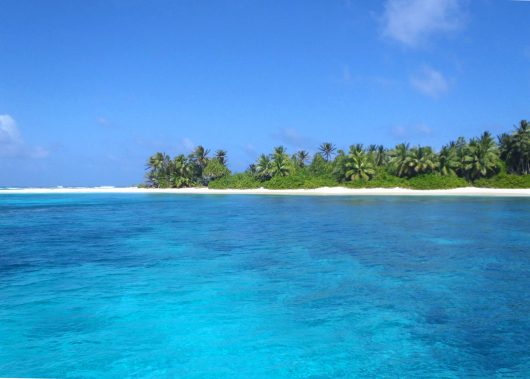Five Ways the Marshall Islands Government is Staying Afloat

The Marshall Islands are two strings of atolls located in the North Pacific between Australia and the Hawaiian Islands. Their main exports are marine goods, coconut products, and handicrafts. Marshallese climate can be unpredictable, with climate change directly impacting the islands. In addition, securing sufficient sources for fresh water is a constant struggle. Because of these issues, many inhabitants of the islands live in poor circumstances, with bad health and little access to energy sources.
Since their year of independence in 1986, the Marshall Islands Government has been engaged in an uphill battle of physical, economic and environmental survival. Fortunately, there are a number of international lifeguards who are helping to keep the Marshallese government afloat.
The United States (U.S.)
One problem the Marshall Islands Government does not have to worry about is military security. Though it is a sovereign state, its military protection is provided by the U.S. But security is not the only service that the United States provides to the islands. The U.S. affords educational, medical and infrastructural aid, and donates funds in an effort to help the islands eventually attain economic self-sufficiency.
Roughly 50 percent of the revenue that the government obtains is gathered from foreign aid, and a large portion of this comes from U.S. coffers due to an agreement entitled the “Compact of Free Associations” which exists between the two nations.
Federal Emergency Management Agency (FEMA)
Though it is an entity within the structure of the United States government, FEMA merits particular mention. Operating under the supervision of the Department of Homeland Security, FEMA’s standard focus is the prevention, response and recovery from disasters that occur within U.S. borders. However, due to the Compact of Free Associations, the agency is also obliged to assist the Marshall Islands when disasters arise.
Just this year, the Marshall Islands have been experiencing one of the worst droughts in their nation’s history, collecting only a quarter of the rainfall that they typically obtain. On April 1st, Marshallese President Hilda Heine declared a state of emergency, and on April 28th FEMA announced that it has allotted federal disaster assistance to the Marshall Islands Government. Millions have been spent in past years on similar disasters.
Australia
The Marshall Island’s southern neighbor, Australia, is dedicated to supporting the islands in the economic and climatic issues. Between the Marshall Islands and two other North Pacific states, the Australian Government has pledged almost $10 million within the next fiscal year.
Australia’s goal is to increase access to water, sanitary facilities, and education. Additionally, Australia is helping to introduce a new public school system and spreading gender equality awareness throughout the islands. Many of these objectives have been reached through the sponsored delivery of water containers and the establishment of better education and scholarships to continue on to higher schooling.
The United Nations (U.N.)
The Marshall Islands and other low-lying countries are particularly susceptible an increase in global temperature. It is projected that low-lying countries like the Marshal Islands will be submerged, or at least uninhabitable, if the global temperature rises just 2 degrees Celcius above pre-industrial levels.
In response to this dilemma, the U.N. has held multiple conferences over the last months in an effort to promote awareness and compliance to goals regarding carbon emissions. Just last month 175 countries were gathered in Paris to sign an agreement on the reduction of fossil fuel usage. The U.N. noted that this conference marked the largest number of countries to sign an international agreement at one time in the history of the world.
The Japan International Cooperation Agency (JICA)
A less recognized, but equally engaged organization is the Japan International Cooperation Agency. JICA focuses on what they call “inclusive development,” which emphasizes individual initiative in evaluating one’s own situation to improve it. JICA simply provides the resources necessary to carry out these improvements.
For the Marshall Islands, JICA is carrying out programs to improve waste control and worldwide education programs. JICA has been training volunteers to travel world-wide in an effort to address these issues, and in 2015 alone almost 3,500 volunteers traveled to the pacific to assist in humanitarian aid projects.
Despite the aid that these organizations are providing to the Marshall Islands, many inhabitants of the country live without the basic necessities of life. Further efforts are needed bring these individuals out of poverty. According to the World Bank, development must begin within the Marshall Islands Government. They commented, “The growth in the economy would be strengthened and sustained by the government’s commitment to reform.” The rest of us simply need to do our part.
– Preston Rust
Photo: Flickr
